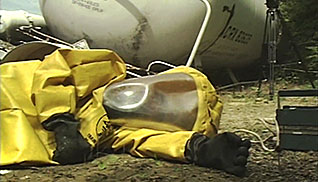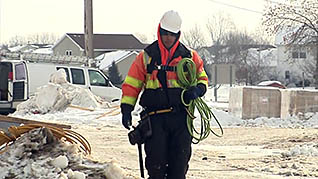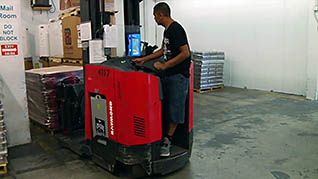Introduction|How Your Body Cools Itself|Fluids & Minerals|Heat Rash, Cramps & Exhaustion|Heat Stroke|First Aid|Acclimatization|Medications, Food & Clothing|Review
Course Description
When working around hazardous materials your personal protective gear may present dangers to your health. Your chemical protective suit not only adds about 30 pounds to your body weight, it blocks air from reaching within the gear. These conditions alone can make the body prone to overheating. Add hot ambient temperatures, and you have a recipe for a potentially fatal condition: heat stroke. This video explains how the body normally regulates its temperature, and how that process can be compromised by personal protective equipment. It stresses the importance of taking post-decontamination breaks on a regular basis and rehydrating with electrolyte-containing beverages to ward off heat stress and heat stroke. Working around hazardous materials is inherently dangerous, and informed workers can learn to minimize the dangers posed by overheating. This video is an important tool in making workers and their managers aware of how to protect again heat illnesses, and what to do if they or a co-worker exhibits symptoms of heat stress or heat stroke. Watching this video can help ensure your workers will drive themselves home after their shift, instead of being driven to the hospital in an ambulance.




